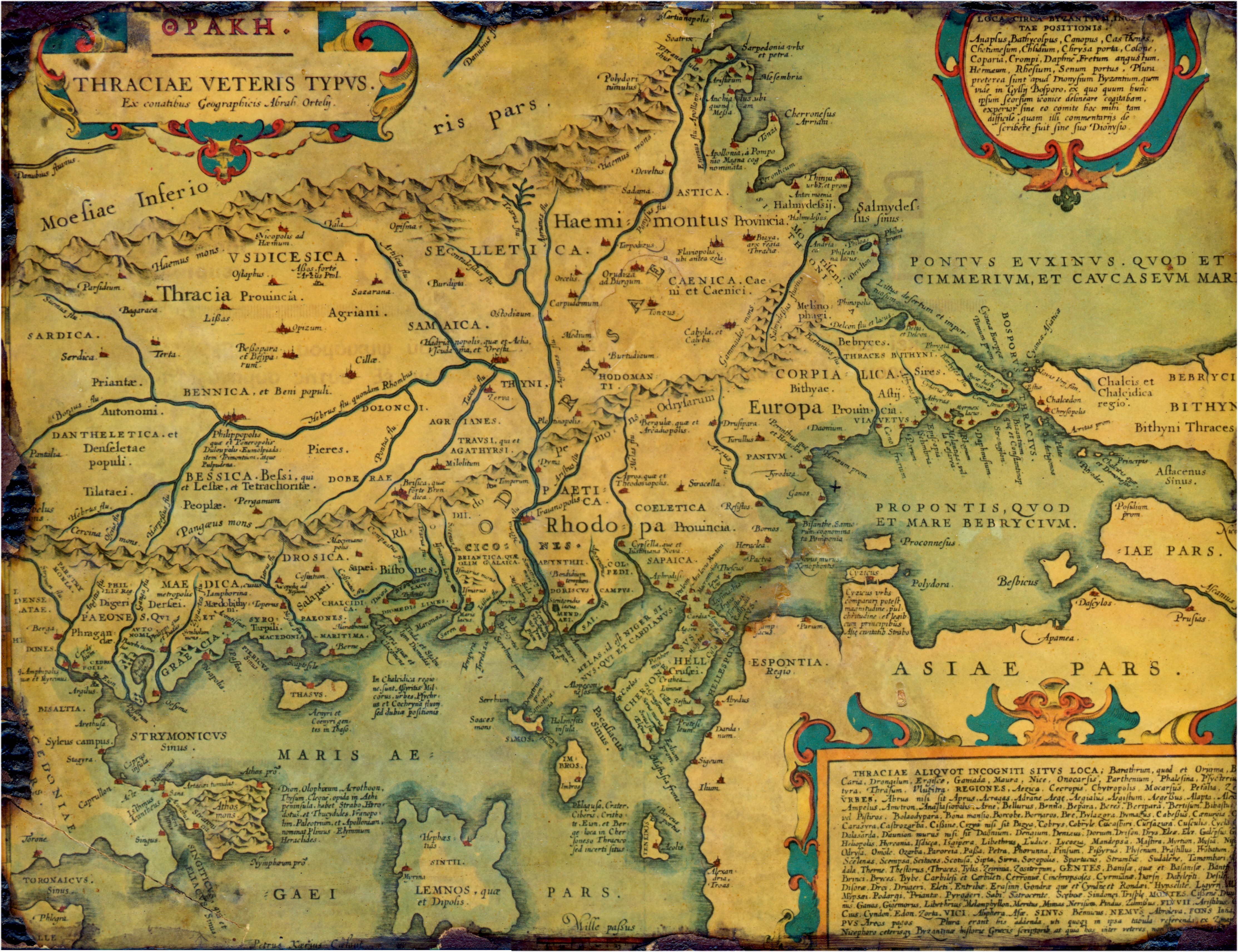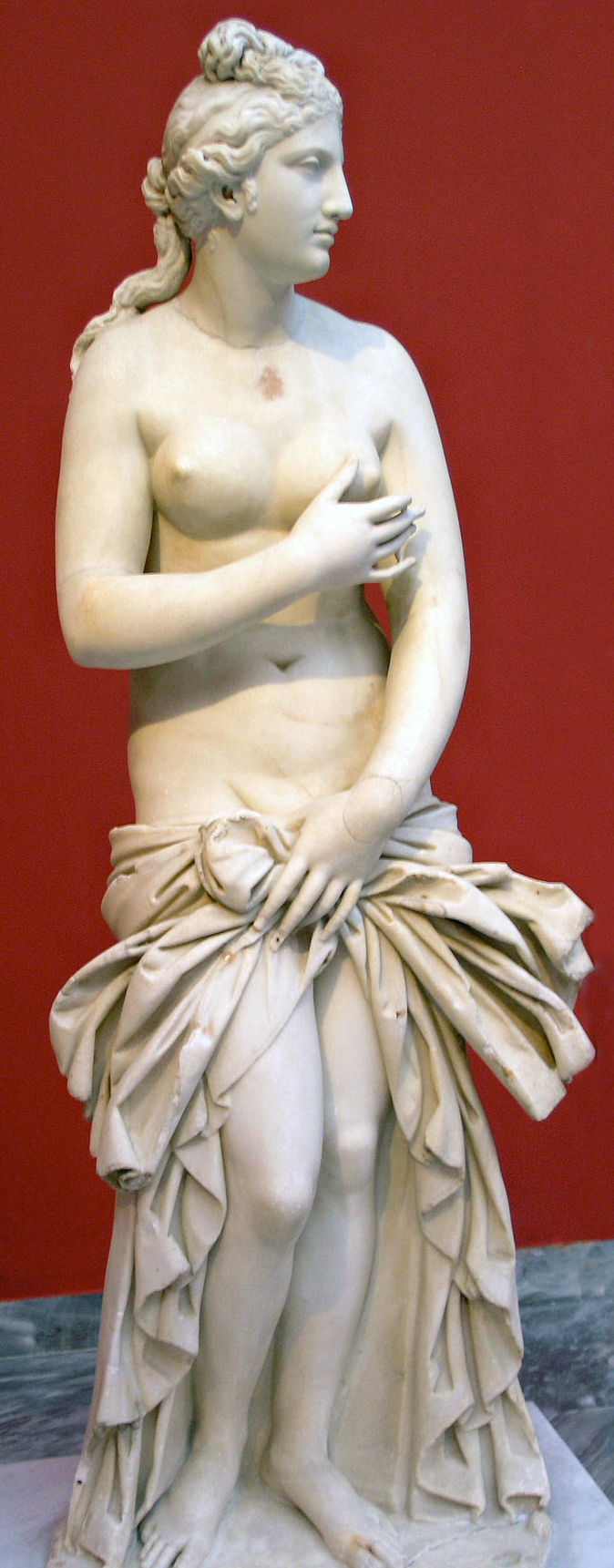|
Carnabon
In Greek mythology, Charnabon (Ancient Greek "Χαρναβών", genitive, gen. "Χαρναβώντος") was a king of the Getae, mentioned in Sophocles' tragedy ''Triptolemos'' as ruling the Getae, without a precise geographical location of his kingdom. Mythology Although the play survived only in brief fragments, the myth of Charnabon and Triptolemus is preserved in the ''Poetical Astronomy'' by Hyginus (who refers to the king as "Carnabon"), and runs as follows:When Triptolemus, while on his mission to introduce agriculture in various parts of the world, came to Thrace, he was at first hospitably received by Carnabon; but then the king treacherously seized his guest and was about to kill him. Triptolemus could not escape, as Carnabon had killed one of the dragons that pulled his chariot. He was rescued by Demeter, who restored the chariot to him and substituted another dragon. She punished Carnabon for having mistreated Triptolemus so harshly that the rest of his life was made ... [...More Info...] [...Related Items...] OR: [Wikipedia] [Google] [Baidu] |
Demeter
In ancient Greek religion and mythology, Demeter (; Attic: ''Dēmḗtēr'' ; Doric: ''Dāmā́tēr'') is the Olympian goddess of the harvest and agriculture, presiding over crops, grains, food, and the fertility of the earth. Although she is mostly known as a grain goddess, she also appeared as a goddess of health, birth, and marriage, and had connections to the Greek Underworld, Underworld. She is also called Deo (). In Greek tradition, Demeter is the second child of the Titans Rhea (mythology), Rhea and Cronus, and sister to Hestia, Hera, Hades, Poseidon, and Zeus. Like her other siblings but Zeus, she was swallowed by her father as an infant and rescued by Zeus. Through her brother Zeus, she became the mother of Persephone, a fertility goddess. One of the most notable Homeric Hymns, the ''Homeric Hymn to Demeter'', tells the story of Persephone's abduction by Hades and Demeter's search for her. When Hades, the King of the Underworld, wished to make Persephone his wife ... [...More Info...] [...Related Items...] OR: [Wikipedia] [Google] [Baidu] |
Mythological Kings Of Thrace
This article lists rulers of Thrace and Dacia, and includes Thracian, Paeonian, Celtic, Dacian, Scythian, Persian or Ancient Greek up to the point of its fall to the Roman Empire, with a few figures from Greek mythology. Mythological *Haemus, became a mountain Haemus Mons * Thrax, son of Ares *Tegyrios, mortal *Eumolpus, inherited a kingdom from Tegyrios *Tereus, the king that was turned into a hoopoe *Phineus, Phoenician son of Agenor, blind king and seer *Poltys, son of Poseidon *Pyreneus, died trying to harm the Muses *Harpalykos, king of the Amymnaeans *Thoas, founder of Thoana *Mopsus, killed Myrine, an amazon queen *Peirous, a Thracian war leader killed by Thoas the Aetolian *Rhesus of Thrace, died in the Trojan war * Cisseus, father of Theano, the wife of Antenor *Diomedes of Thrace, Giant that ruled over the Bistones *Lycurgus, of the Edoni *Oeagrus, father of Orpheus and Linus *Orpheus of the Cicones *Polymestor of the Bistonians *Zalmoxis of the Getae *Charnabon of the ... [...More Info...] [...Related Items...] OR: [Wikipedia] [Google] [Baidu] |
Dacian Kings
This article lists rulers of Thrace and Dacia, and includes Thracian, Paeonian, Celtic, Dacian, Scythian, Persian or Ancient Greek up to the point of its fall to the Roman Empire, with a few figures from Greek mythology. Mythological *Haemus, became a mountain Haemus Mons * Thrax, son of Ares *Tegyrios, mortal *Eumolpus, inherited a kingdom from Tegyrios *Tereus, the king that was turned into a hoopoe *Phineus, Phoenician son of Agenor, blind king and seer *Poltys, son of Poseidon *Pyreneus, died trying to harm the Muses *Harpalykos, king of the Amymnaeans *Thoas, founder of Thoana *Mopsus, killed Myrine, an amazon queen *Peirous, a Thracian war leader killed by Thoas the Aetolian *Rhesus of Thrace, died in the Trojan war *Cisseus, father of Theano, the wife of Antenor *Diomedes of Thrace, Giant that ruled over the Bistones *Lycurgus, of the Edoni *Oeagrus, father of Orpheus and Linus *Orpheus of the Cicones *Polymestor of the Bistonians *Zalmoxis of the Getae *Charnabon of the Ge ... [...More Info...] [...Related Items...] OR: [Wikipedia] [Google] [Baidu] |
Ophiuchus
Ophiuchus () is a large constellation straddling the celestial equator. Its name comes from the Ancient Greek (), meaning "serpent-bearer", and it is commonly represented as a man grasping a snake. The serpent is represented by the constellation Serpens. Ophiuchus was one of the 48 constellations listed by the 2nd-century astronomer Ptolemy, and it remains one of the 88 modern constellations. An old alternative name for the constellation was Serpentarius (). Location Ophiuchus lies between Aquila, Serpens, Scorpius, Sagittarius, and Hercules, northwest of the center of the Milky Way. The southern part lies between Scorpius to the west and Sagittarius to the east. In the northern hemisphere, it is best visible in summer. It is opposite of Orion. Ophiuchus is depicted as a man grasping a serpent; the interposition of his body divides the snake constellation Serpens into two parts, Serpens Caput and Serpens Cauda. Ophiuchus straddles the equator with the majority ... [...More Info...] [...Related Items...] OR: [Wikipedia] [Google] [Baidu] |
Greek Mythology Of Thrace
Greek may refer to: Greece Anything of, from, or related to Greece, a country in Southern Europe: *Greeks, an ethnic group. *Greek language, a branch of the Indo-European language family. **Proto-Greek language, the assumed last common ancestor of all known varieties of Greek. **Mycenaean Greek, most ancient attested form of the language (16th to 11th centuries BC). **Ancient Greek, forms of the language used c. 1000–330 BC. **Koine Greek, common form of Greek spoken and written during Classical antiquity. **Medieval Greek or Byzantine Language, language used between the Middle Ages and the Ottoman conquest of Constantinople. **Modern Greek, varieties spoken in the modern era (from 1453 AD). *Greek alphabet, script used to write the Greek language. *Greek Orthodox Church, several Churches of the Eastern Orthodox Church. *Ancient Greece, the ancient civilization before the end of Antiquity. *Old Greek, the language as spoken from Late Antiquity to around 1500 AD. Other uses * '' ... [...More Info...] [...Related Items...] OR: [Wikipedia] [Google] [Baidu] |
Kings In Greek Mythology
Kings or King's may refer to: *Monarchs: The sovereign heads of states and/or nations, with the male being kings *One of several works known as the "Book of Kings": **The Books of Kings part of the Bible, divided into two parts **The ''Shahnameh'', an 11th-century epic Persian poem **The Morgan Bible, a French medieval picture Bible **The Pararaton, a 16th-century Javanese history of southeast Asia *The plural of any king Business * Kings Family Restaurants, a chain of restaurants in Pennsylvania and Ohio *Kings Food Markets, a chain supermarket in northern New Jersey * King's Favourites, a brand of cigarettes *King's Variety Store, a chain of stores in the USA *King's (defunct discount store), a defunct chain of discount stores in the USA Education *King's College (other), various colleges * King's School (other), various schools * The King's Academy (other), various academies Electoral districts * King's (New Brunswick electoral district) (1867–1 ... [...More Info...] [...Related Items...] OR: [Wikipedia] [Google] [Baidu] |
List Of Greek Mythological Figures
The following is a list of gods, goddesses, and many other divine and semi-divine figures from ancient Greek mythology and ancient Greek religion. Immortals The Greeks created images of their deities for many purposes. A temple would house the statue of a god or goddess, or multiple deities, and might be decorated with relief scenes depicting myths. Divine images were common on coins. Drinking cups and other vessels were painted with scenes from Greek myths. Major gods and goddesses Greek primordial deities Titans and Titanesses The Titan gods and goddesses are depicted in Greek art less commonly than the Olympians. File:Eos Memnon Louvre G115.jpg, Eos (Dawn) and the hero Memnon (490–480 BC) File:Ilion---metopa.jpg, Helios in his four-horse chariot (3rd century BC) File:0029MAN-Themis.jpg, Themis, from the Temple of Nemesis (ca. 300 BC) File:Antakya Arkeoloji Muzesi 02366 nevit.jpg, Oceanus wearing crab-claw horns, with Tethys ( Roman-era mosaic) File:Creation Promethe ... [...More Info...] [...Related Items...] OR: [Wikipedia] [Google] [Baidu] |
Greek Mythology
A major branch of classical mythology, Greek mythology is the body of myths originally told by the Ancient Greece, ancient Greeks, and a genre of Ancient Greek folklore. These stories concern the Cosmogony, origin and Cosmology#Metaphysical cosmology, nature of the world, the lives and activities of List of Greek mythological figures, deities, Greek hero cult, heroes, and List of Greek mythological creatures, mythological creatures, and the origins and significance of the ancient Greeks' own cult (religious practice), cult and ritual practices. Modern scholars study the myths to shed light on the religious and political institutions of ancient Greece, and to better understand the nature of myth-making itself. The Greek myths were initially propagated in an oral tradition, oral-poetic tradition most likely by Minoan civilization, Minoan and Mycenaean Greece, Mycenaean singers starting in the 18th century BC; eventually the myths of the heroes of the Trojan War and its after ... [...More Info...] [...Related Items...] OR: [Wikipedia] [Google] [Baidu] |
Ancient Greek
Ancient Greek includes the forms of the Greek language used in ancient Greece and the ancient world from around 1500 BC to 300 BC. It is often roughly divided into the following periods: Mycenaean Greek (), Dark Ages (), the Archaic period (), and the Classical period (). Ancient Greek was the language of Homer and of fifth-century Athenian historians, playwrights, and philosophers. It has contributed many words to English vocabulary and has been a standard subject of study in educational institutions of the Western world since the Renaissance. This article primarily contains information about the Epic and Classical periods of the language. From the Hellenistic period (), Ancient Greek was followed by Koine Greek, which is regarded as a separate historical stage, although its earliest form closely resembles Attic Greek and its latest form approaches Medieval Greek. There were several regional dialects of Ancient Greek, of which Attic Greek developed into Koine. Dia ... [...More Info...] [...Related Items...] OR: [Wikipedia] [Google] [Baidu] |
Thrace
Thrace (; el, Θράκη, Thráki; bg, Тракия, Trakiya; tr, Trakya) or Thrake is a geographical and historical region in Southeast Europe, now split among Bulgaria, Greece, and Turkey, which is bounded by the Balkan Mountains to the north, the Aegean Sea to the south, and the Black Sea to the east. It comprises southeastern Bulgaria (Northern Thrace), northeastern Greece (Western Thrace), and the European part of Turkey ( East Thrace). The region's boundaries are based on that of the Roman Province of Thrace; the lands inhabited by the ancient Thracians extended in the north to modern-day Northern Bulgaria and Romania and to the west into the region of Macedonia. Etymology The word ''Thrace'' was first used by the Greeks when referring to the Thracian tribes, from ancient Greek Thrake (Θρᾴκη), descending from ''Thrāix'' (Θρᾷξ). It referred originally to the Thracians, an ancient people inhabiting Southeast Europe. The name ''Europe'' first referred to ... [...More Info...] [...Related Items...] OR: [Wikipedia] [Google] [Baidu] |
Triptolemus
In Greek mythology, Triptolemus ( el, Τριπτόλεμος, ''Triptólemos'', lit. "threefold warrior"; also known as Buzyges) is a figure connected with the goddess Demeter of the Eleusinian Mysteries. He was either a mortal prince, the eldest son of King Celeus of Eleusis, or, according to Pseudo-Apollodorus' '' Bibliotheca'' (I.V.2), the son of Gaia and Oceanus. Mythology Persephone's abduction While Demeter (in the guise of an old woman named Doso) was searching for her daughter Persephone (Kore), who had been abducted by Hades, she received a hospitable welcome from Celeus. He asked her to nurse Demophon—"killer of men", a counterpart to Triptolemus— and Triptolemus, his sons by Metanira. Demeter saw Triptolemus was sick and fed him her breast milk. Not only did he recover his strength but he instantly became an adult. As another gift to Celeus, in gratitude for his hospitality, Demeter secretly planned to make Demophon immortal by burning away his mort ... [...More Info...] [...Related Items...] OR: [Wikipedia] [Google] [Baidu] |







